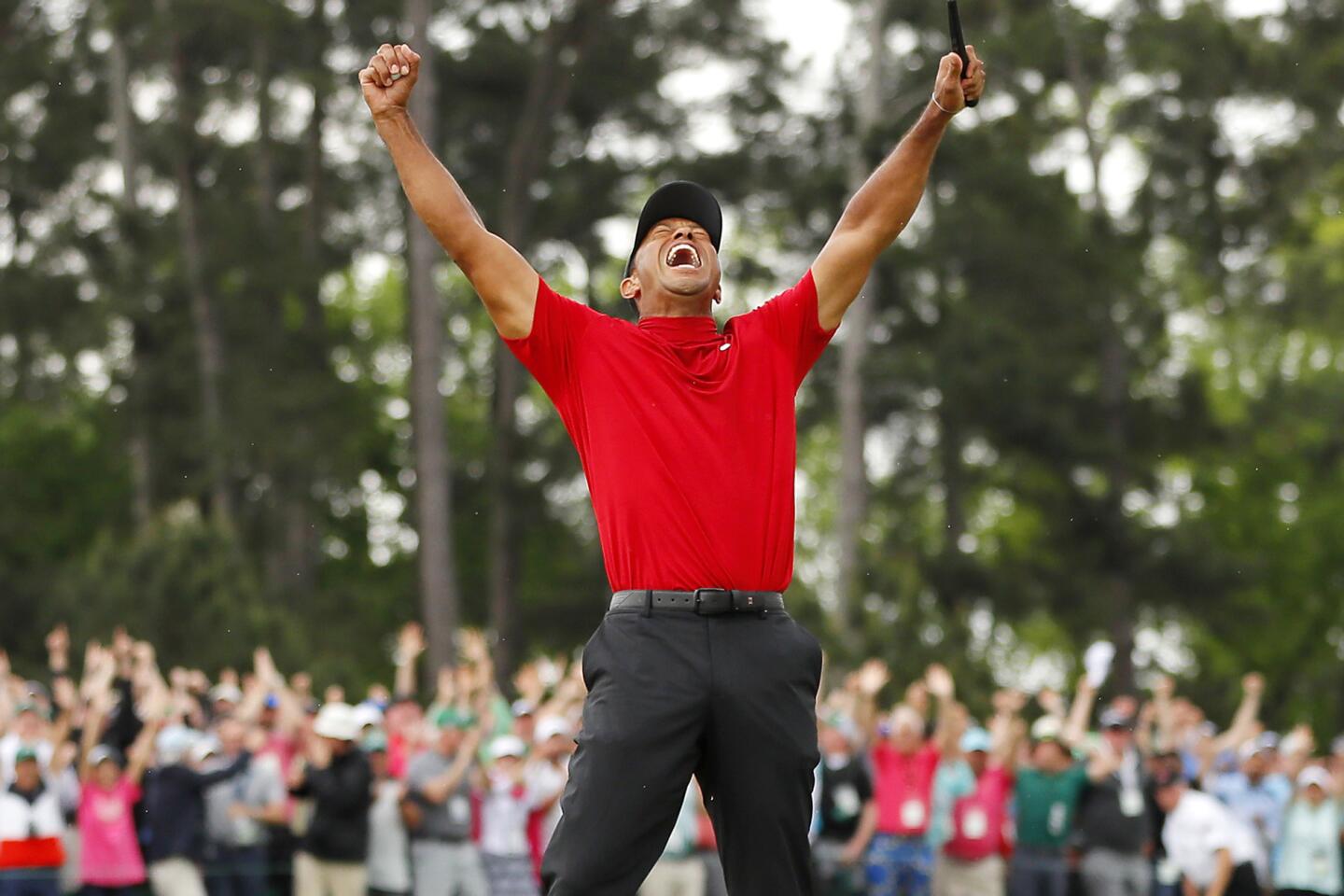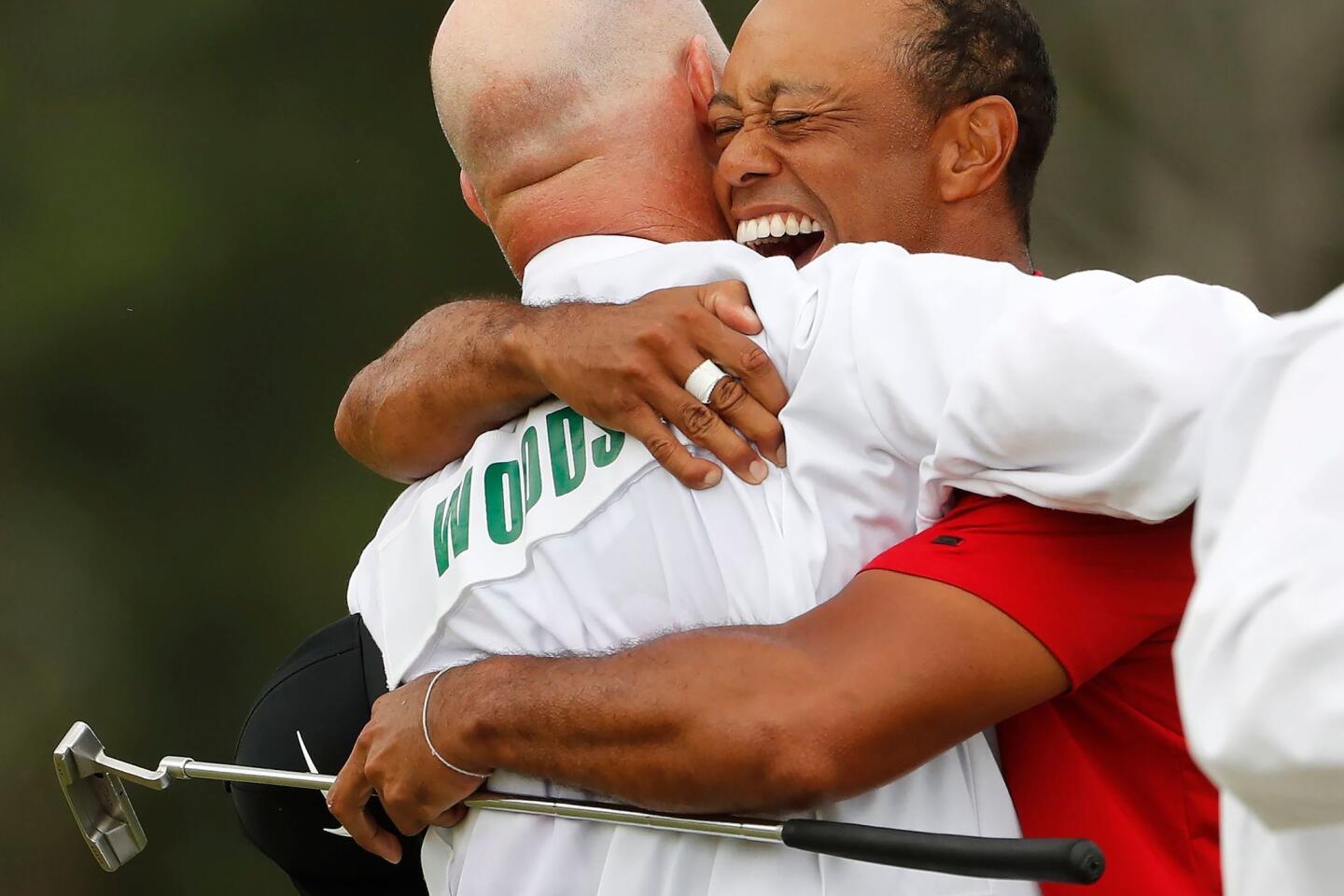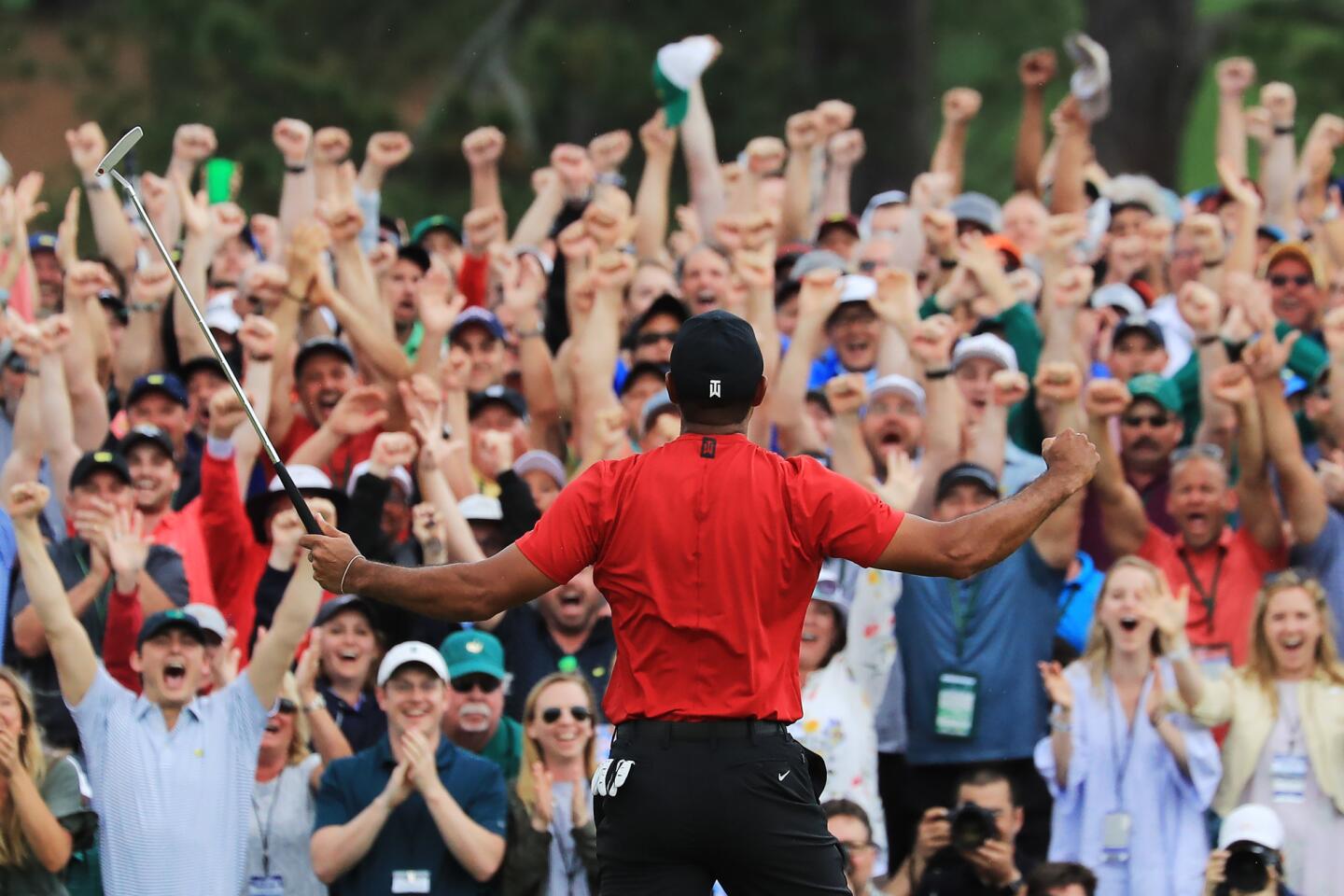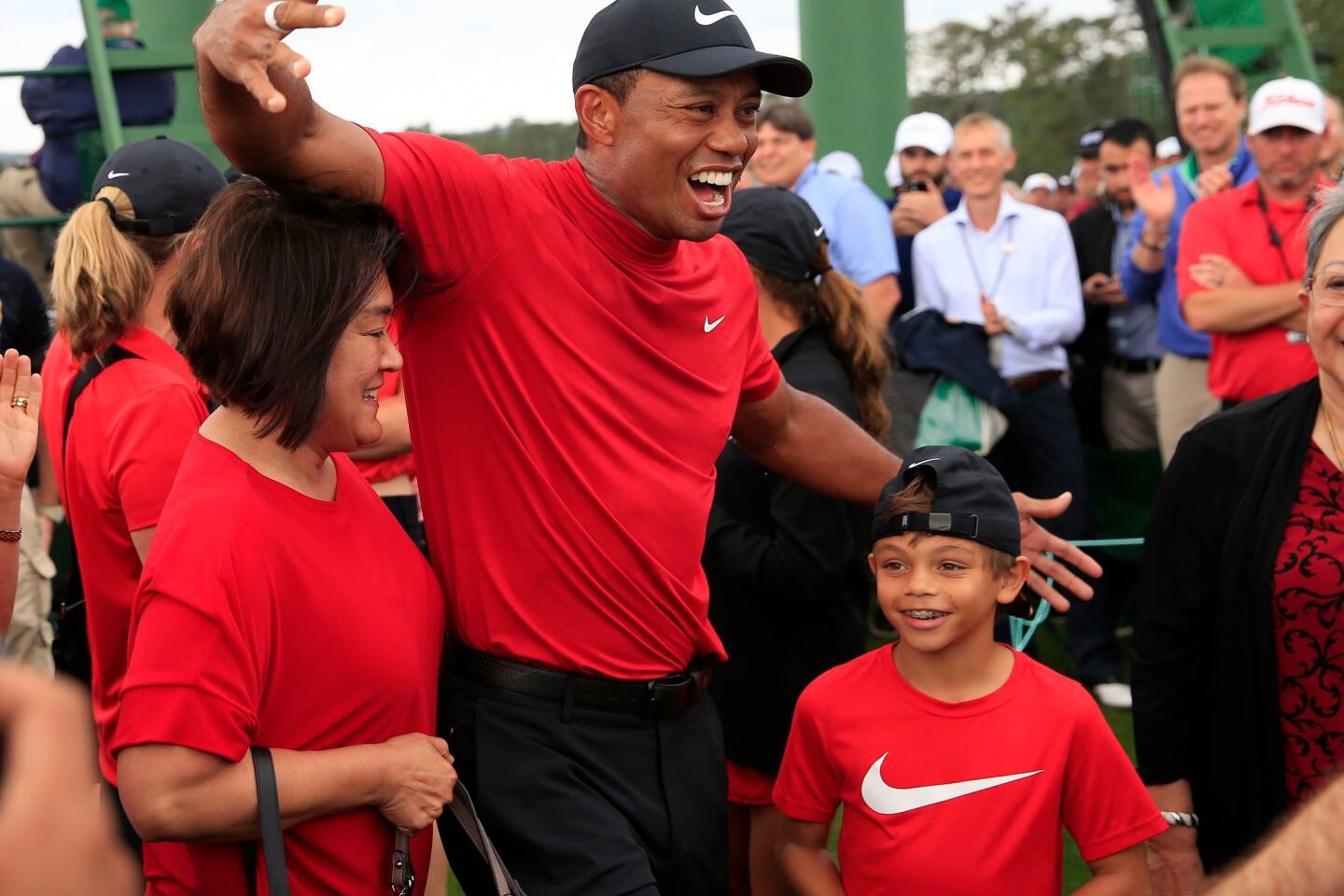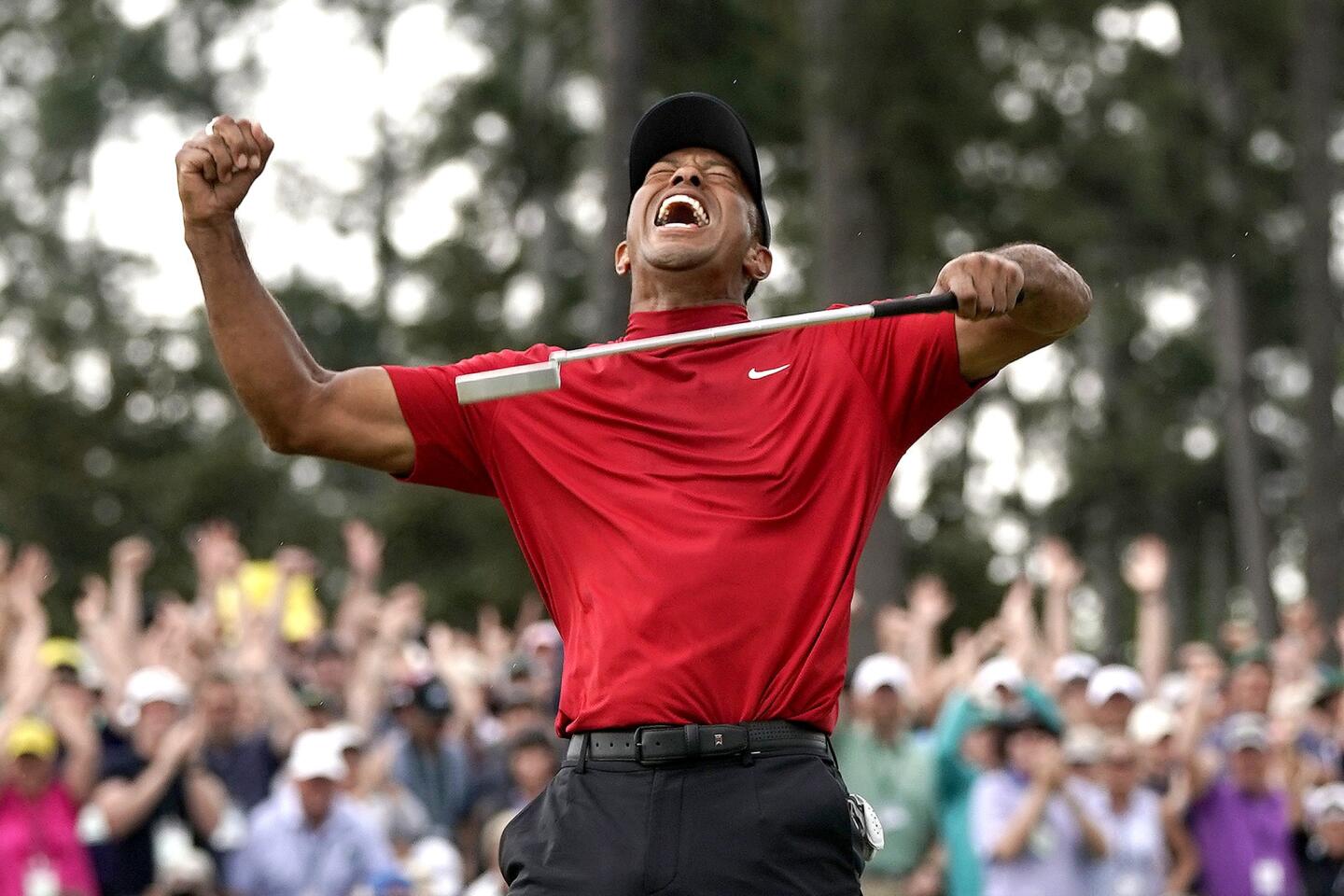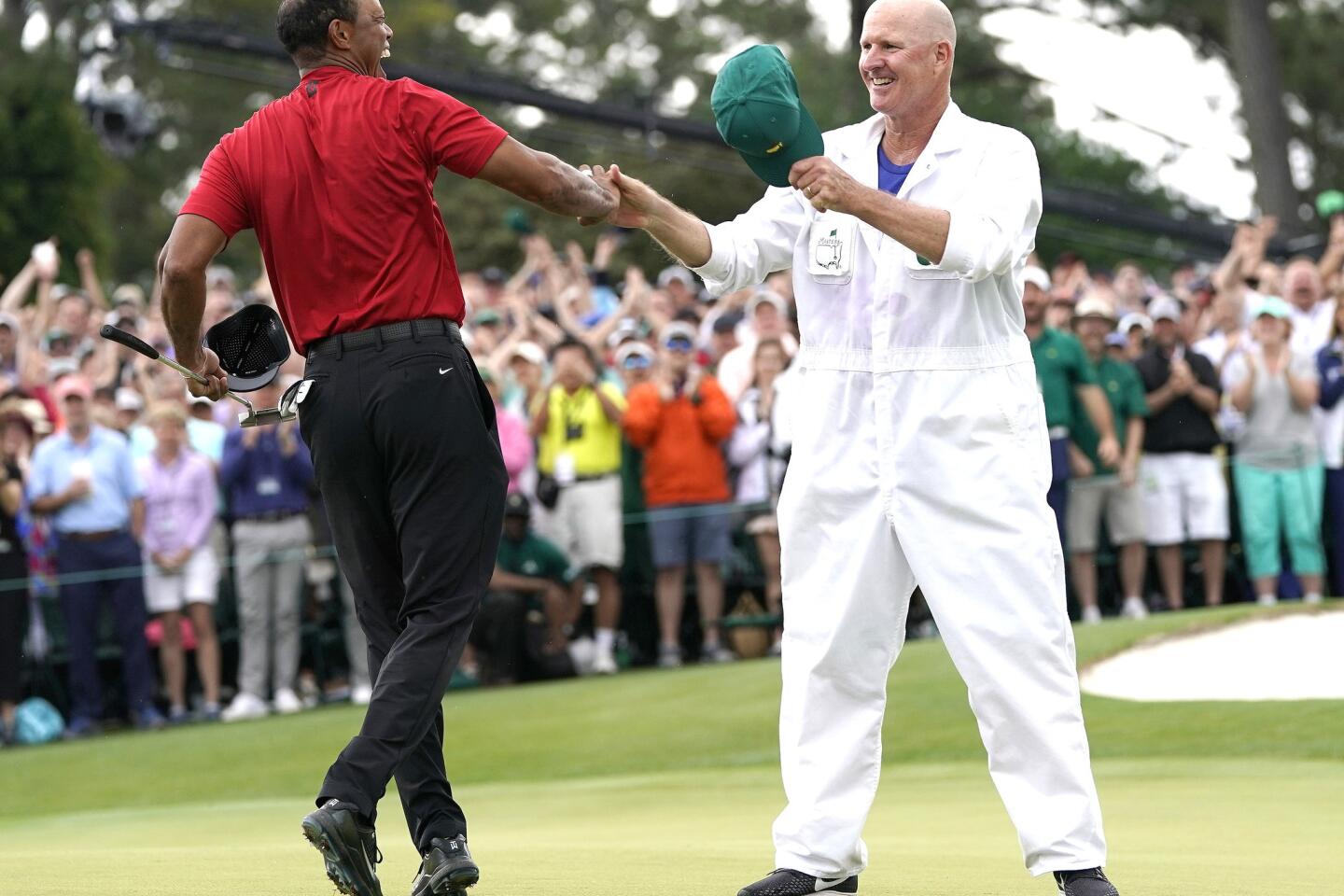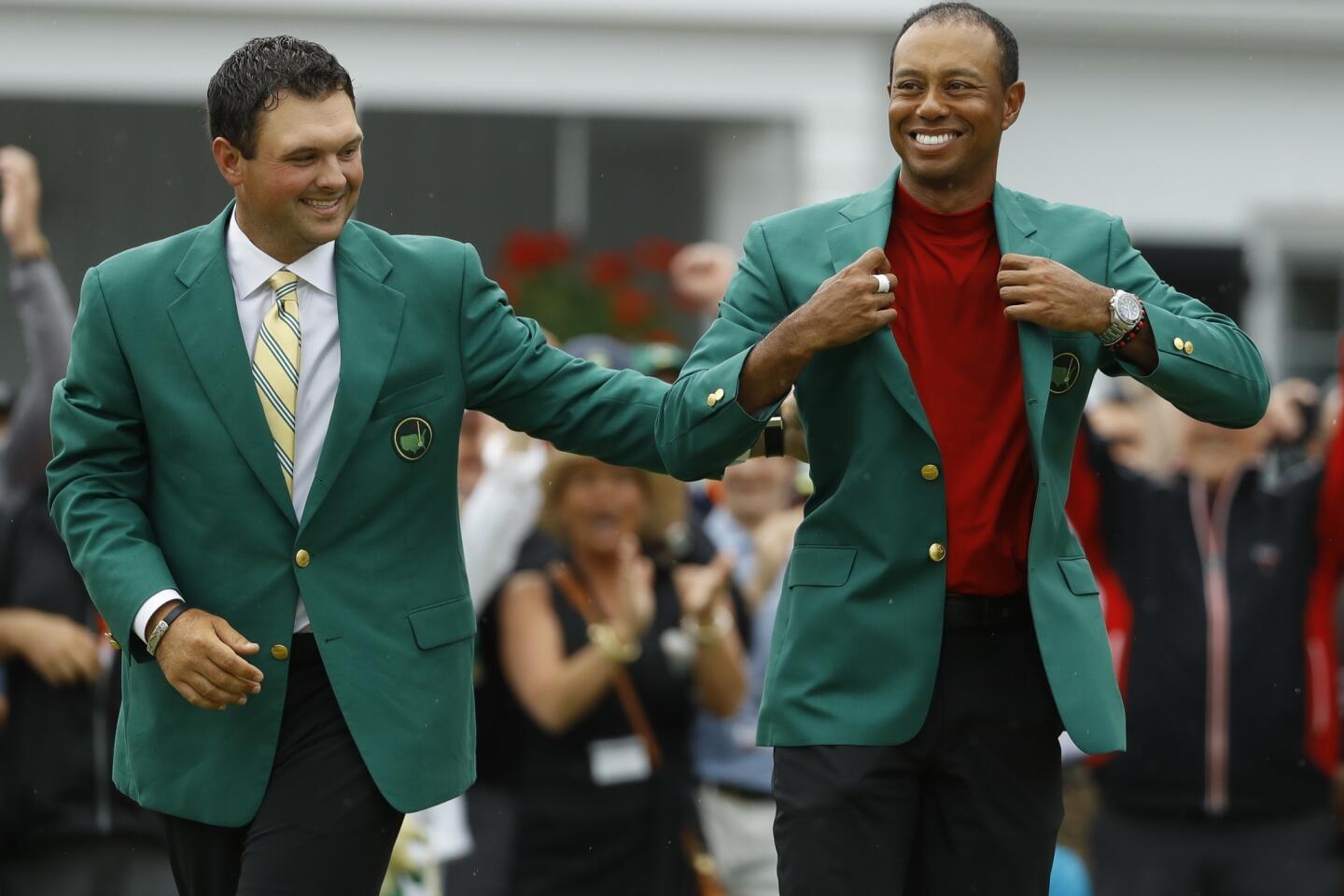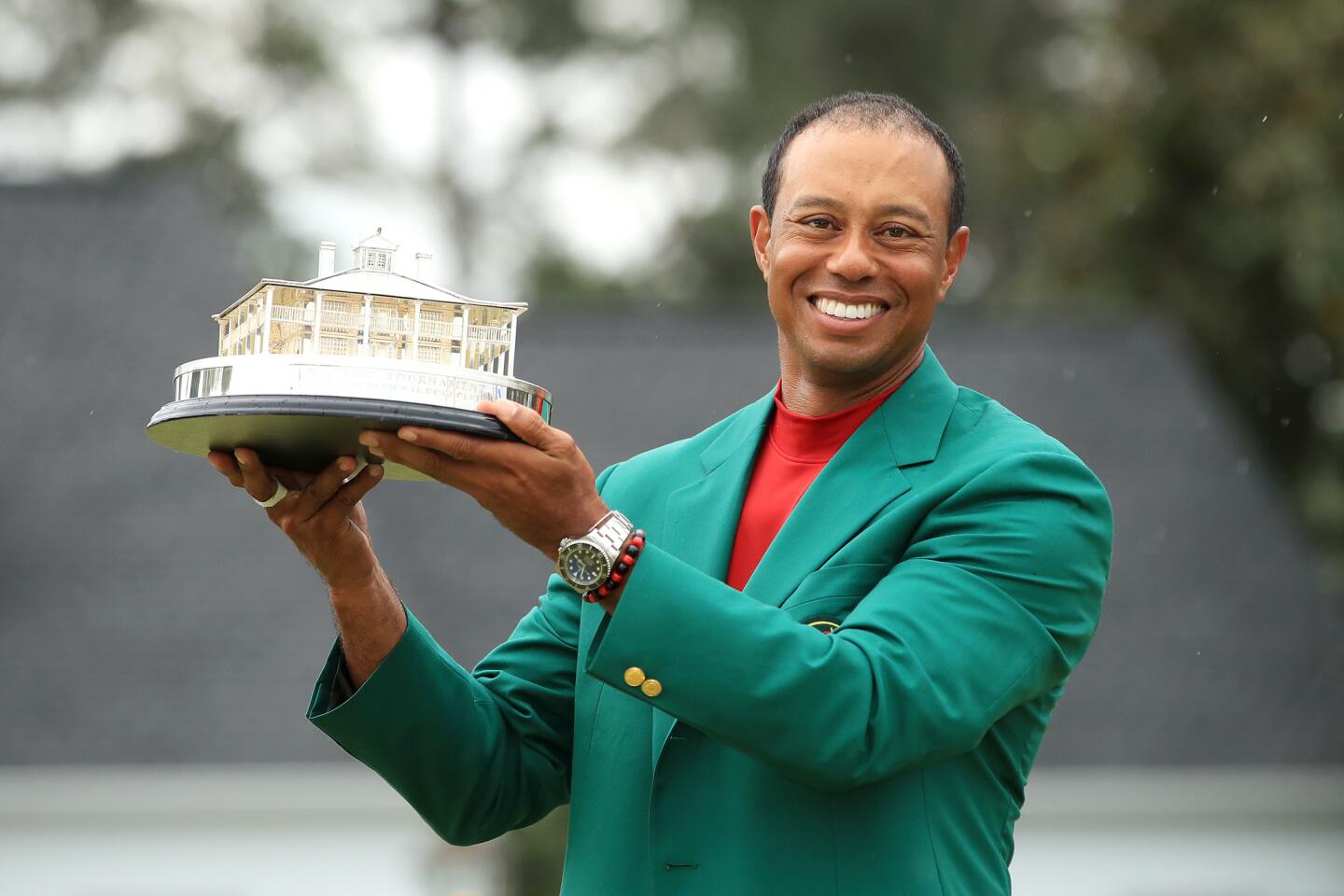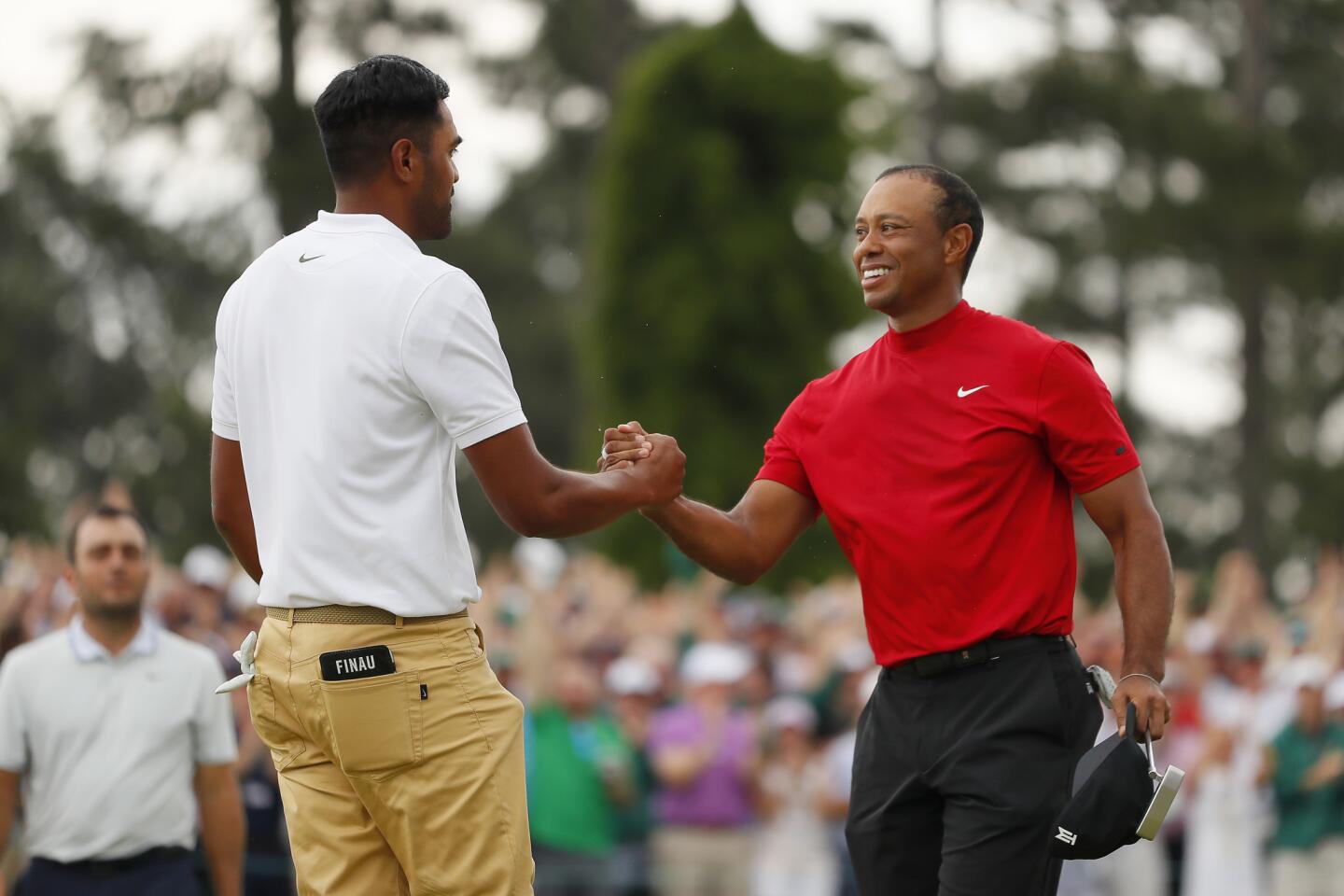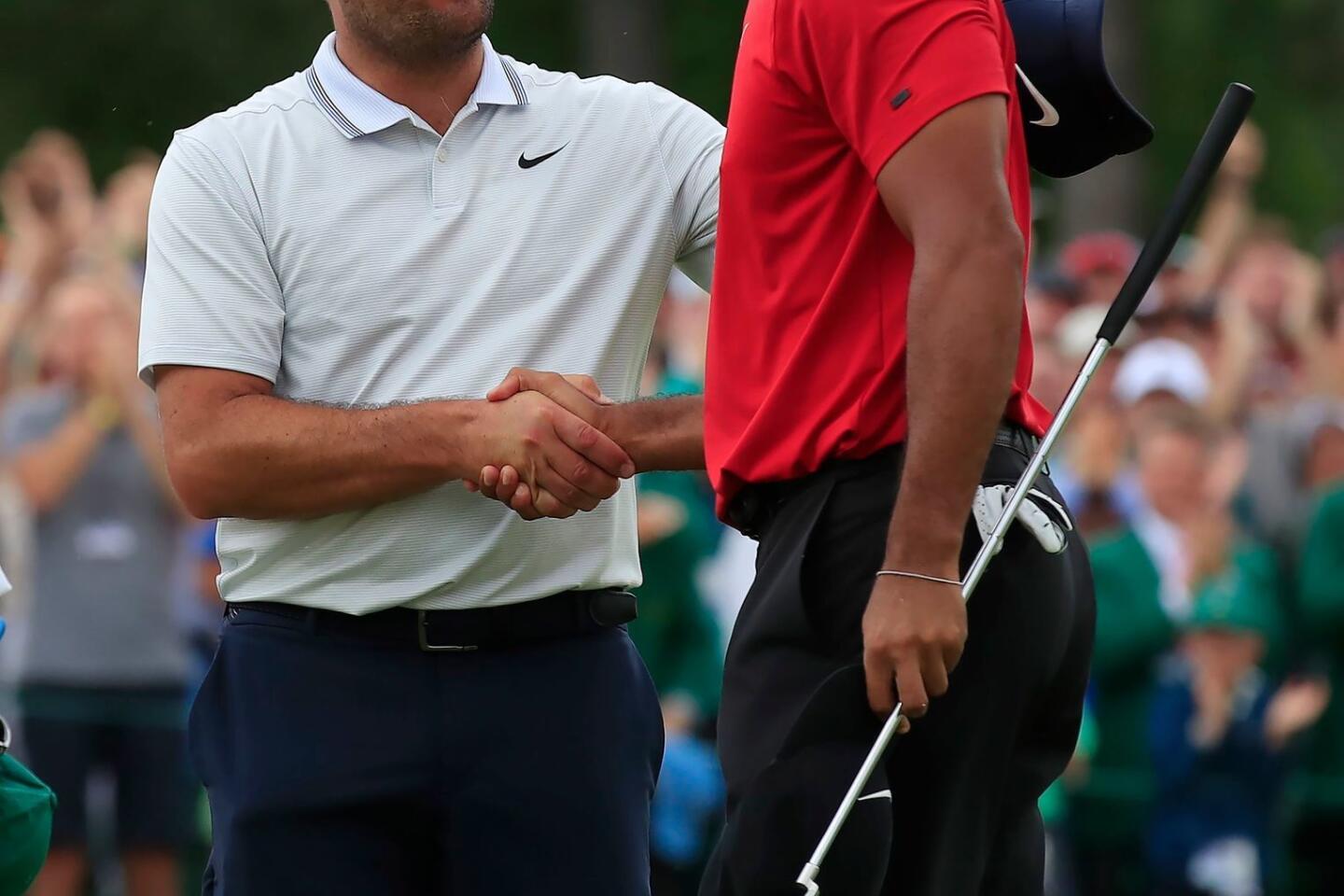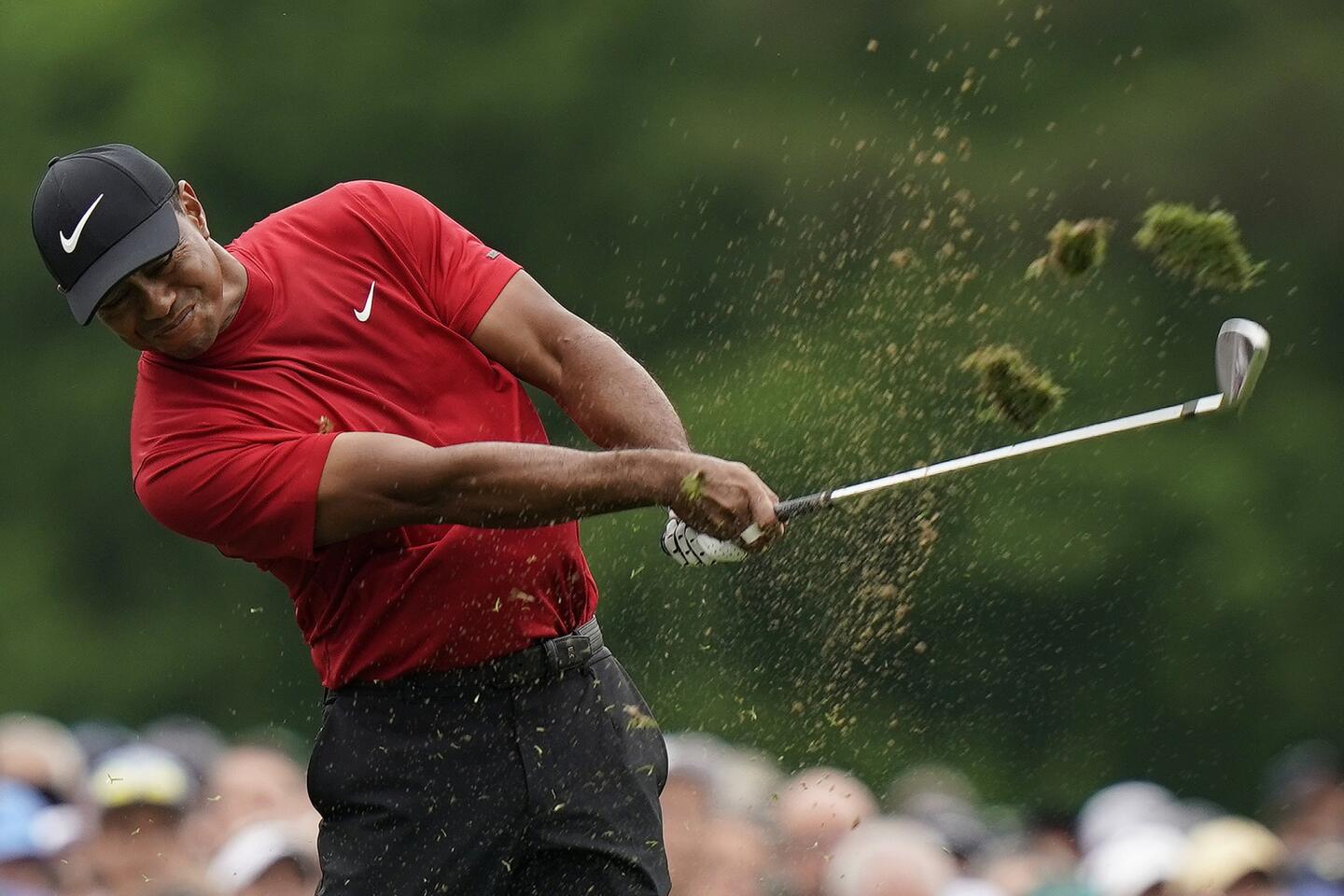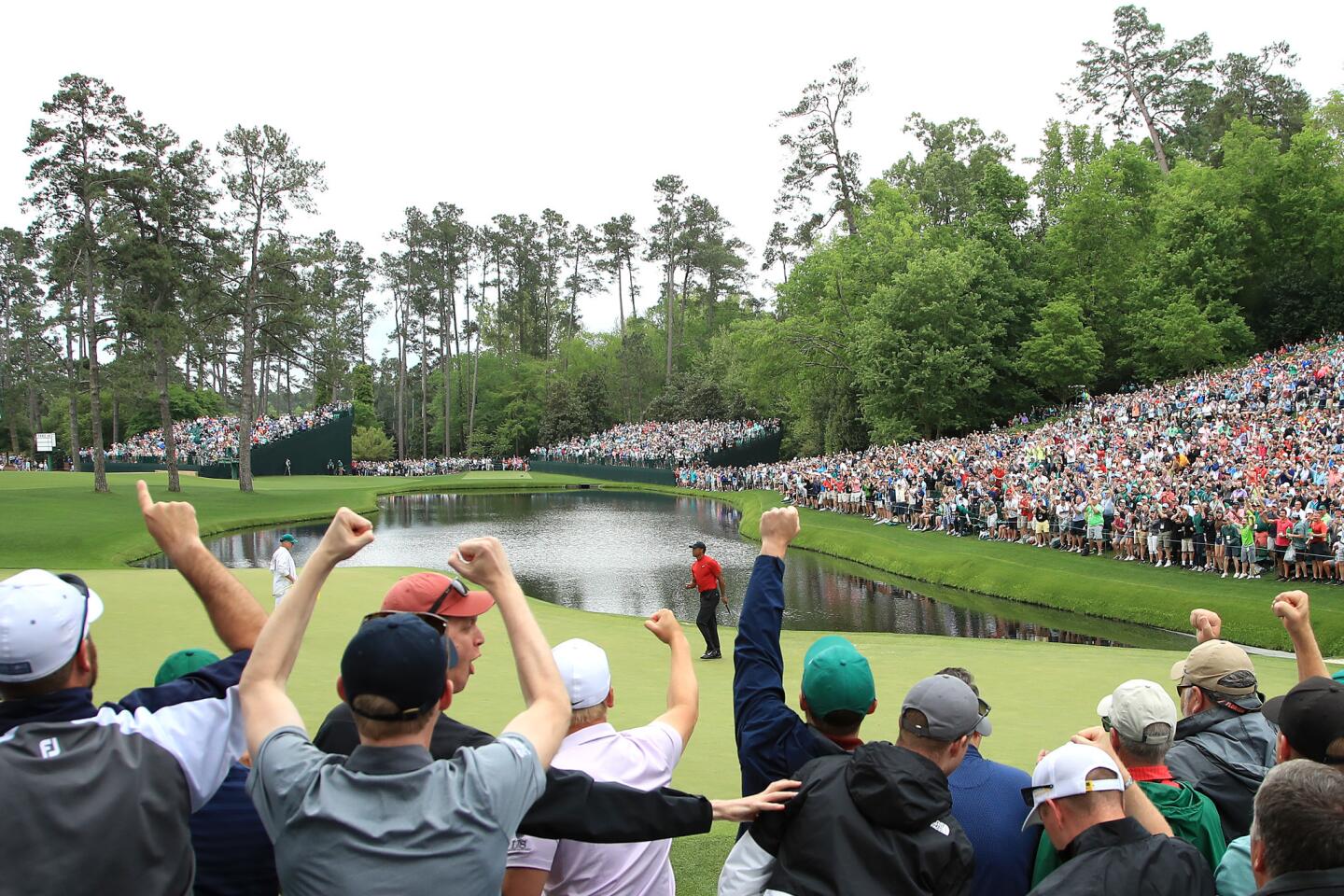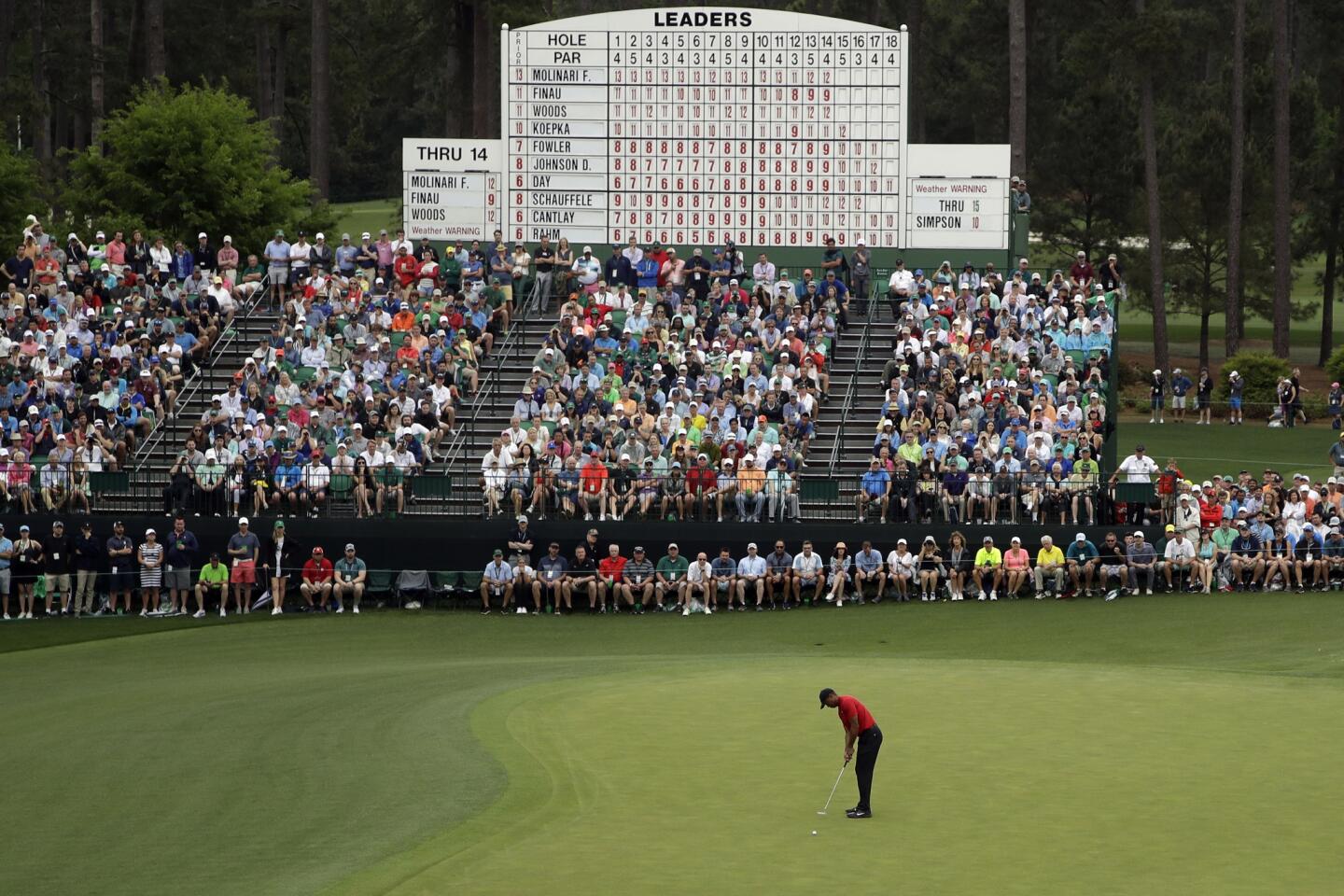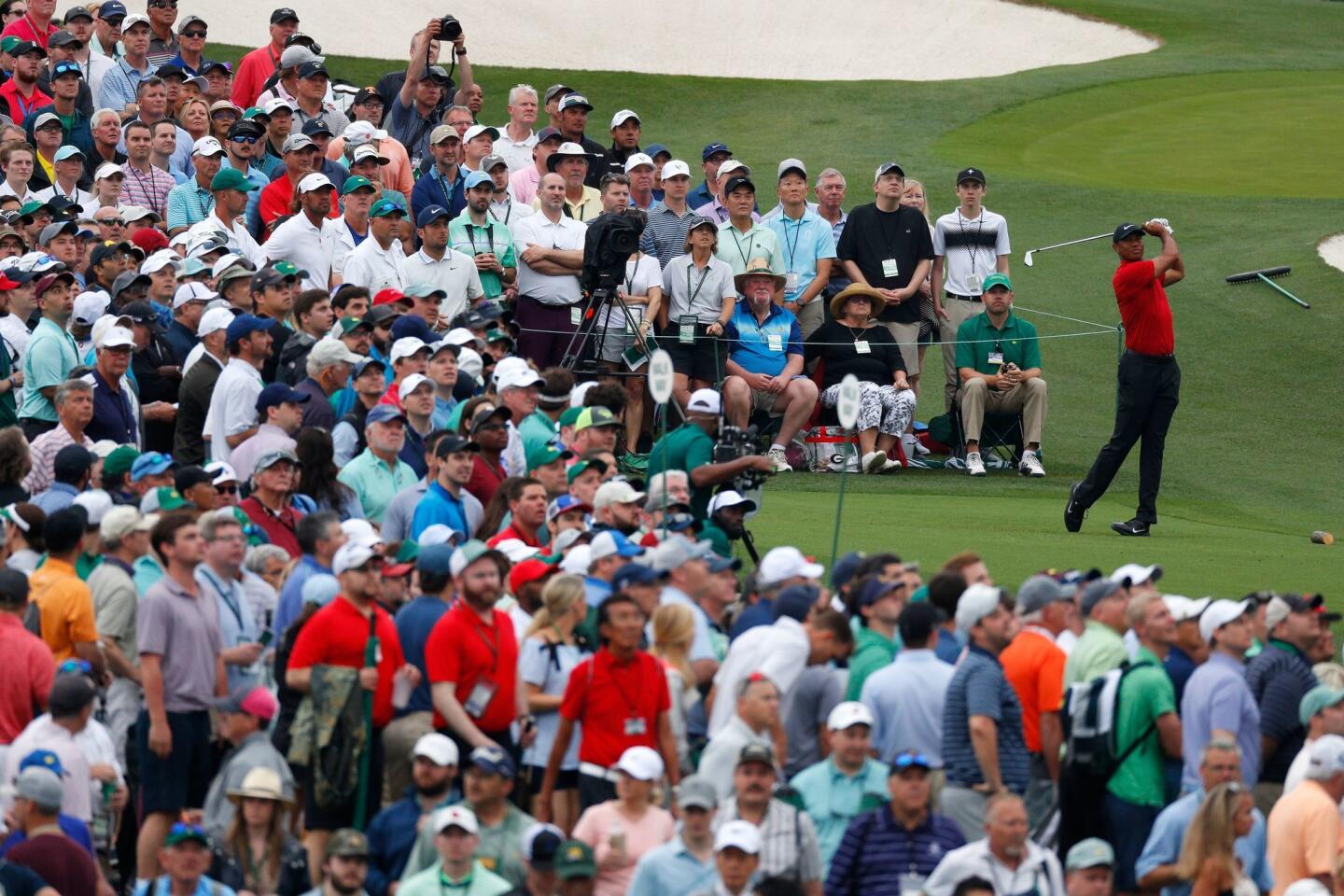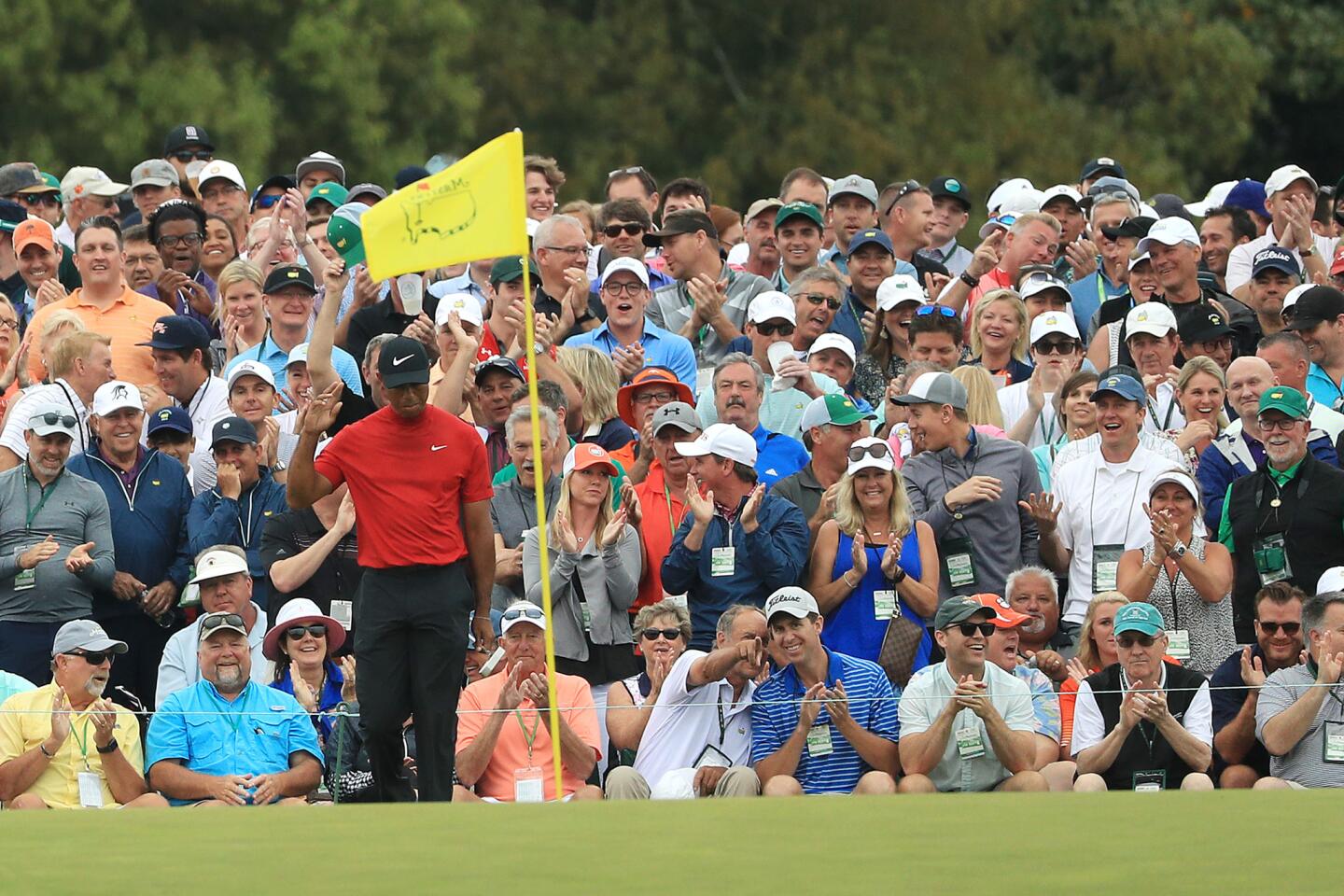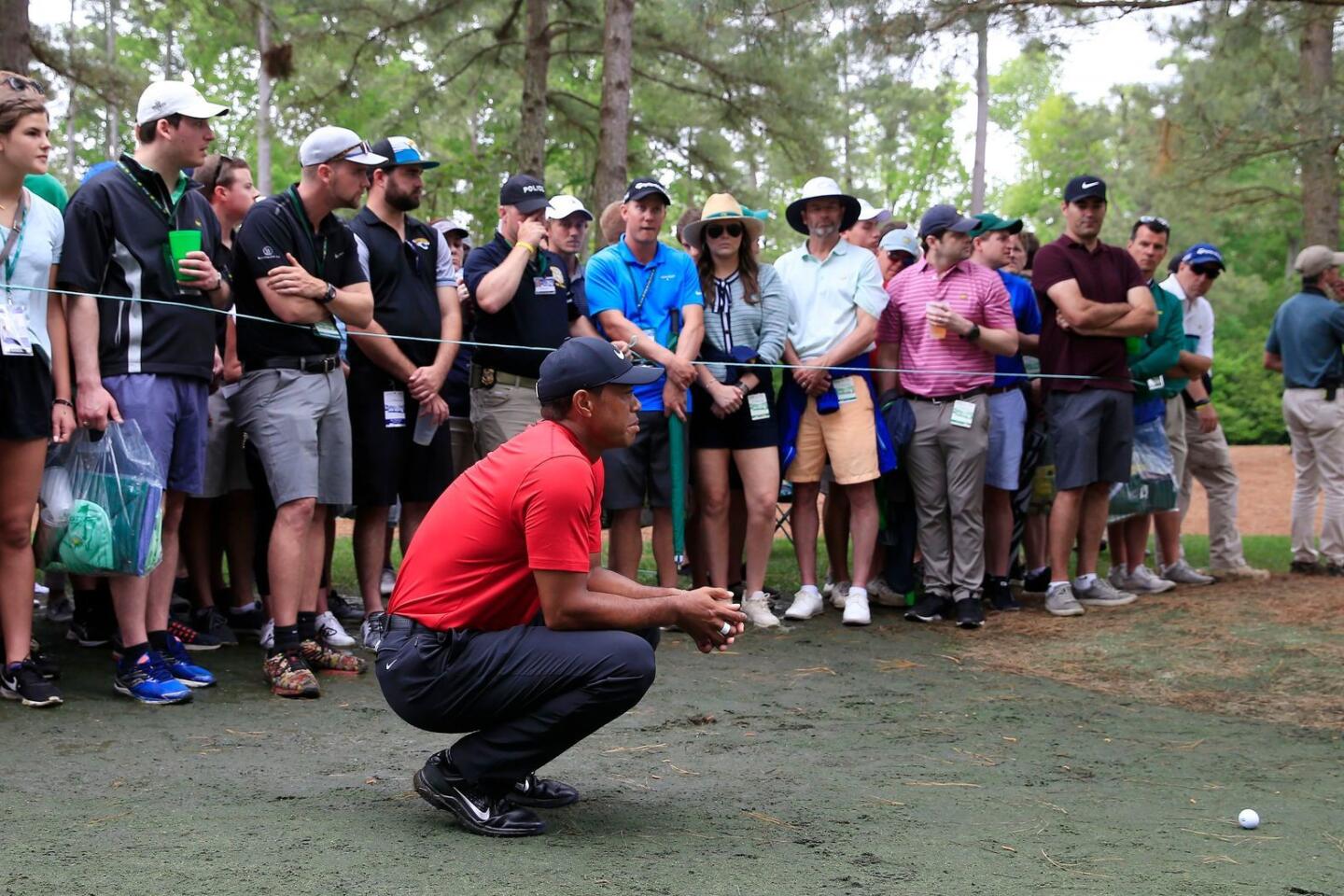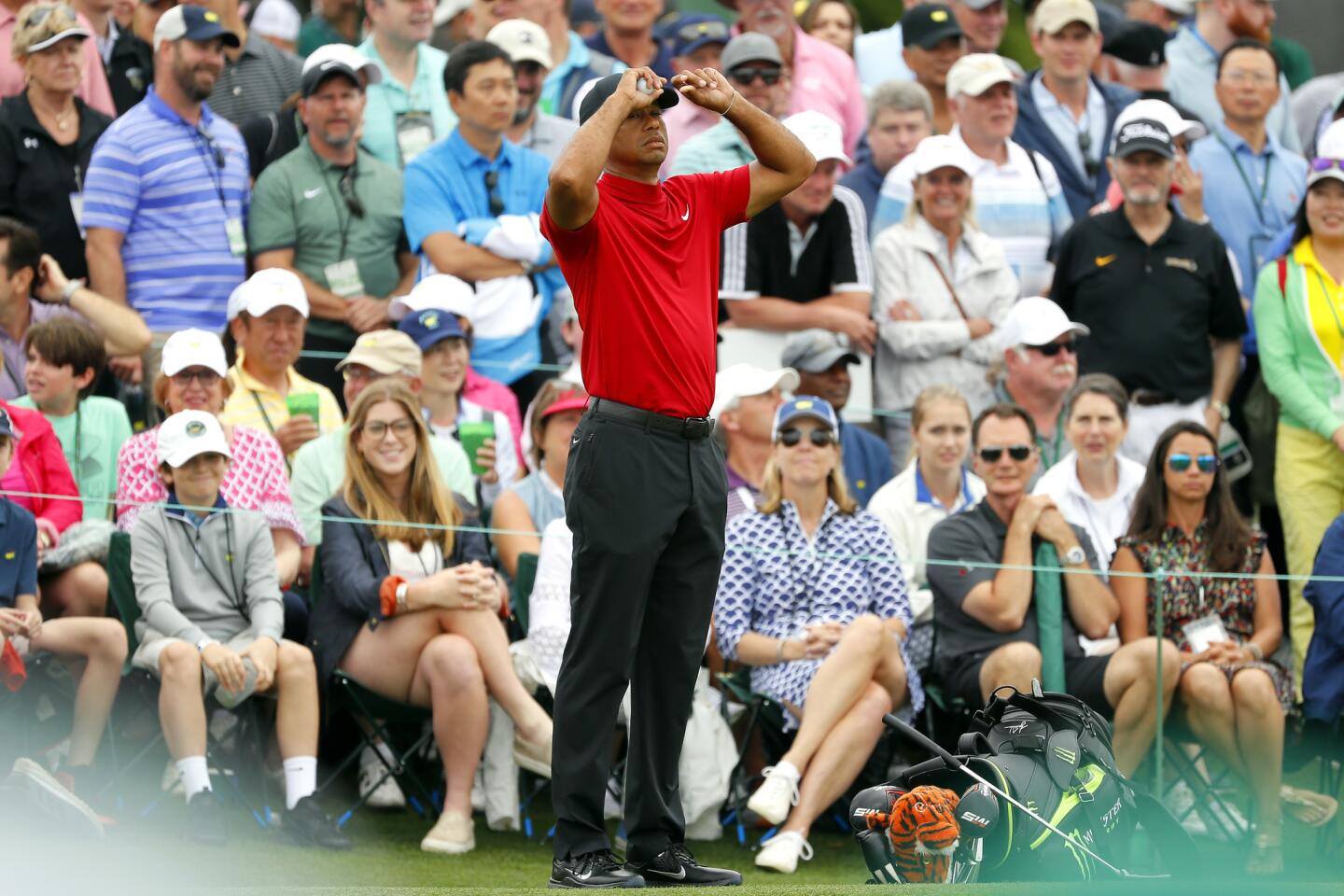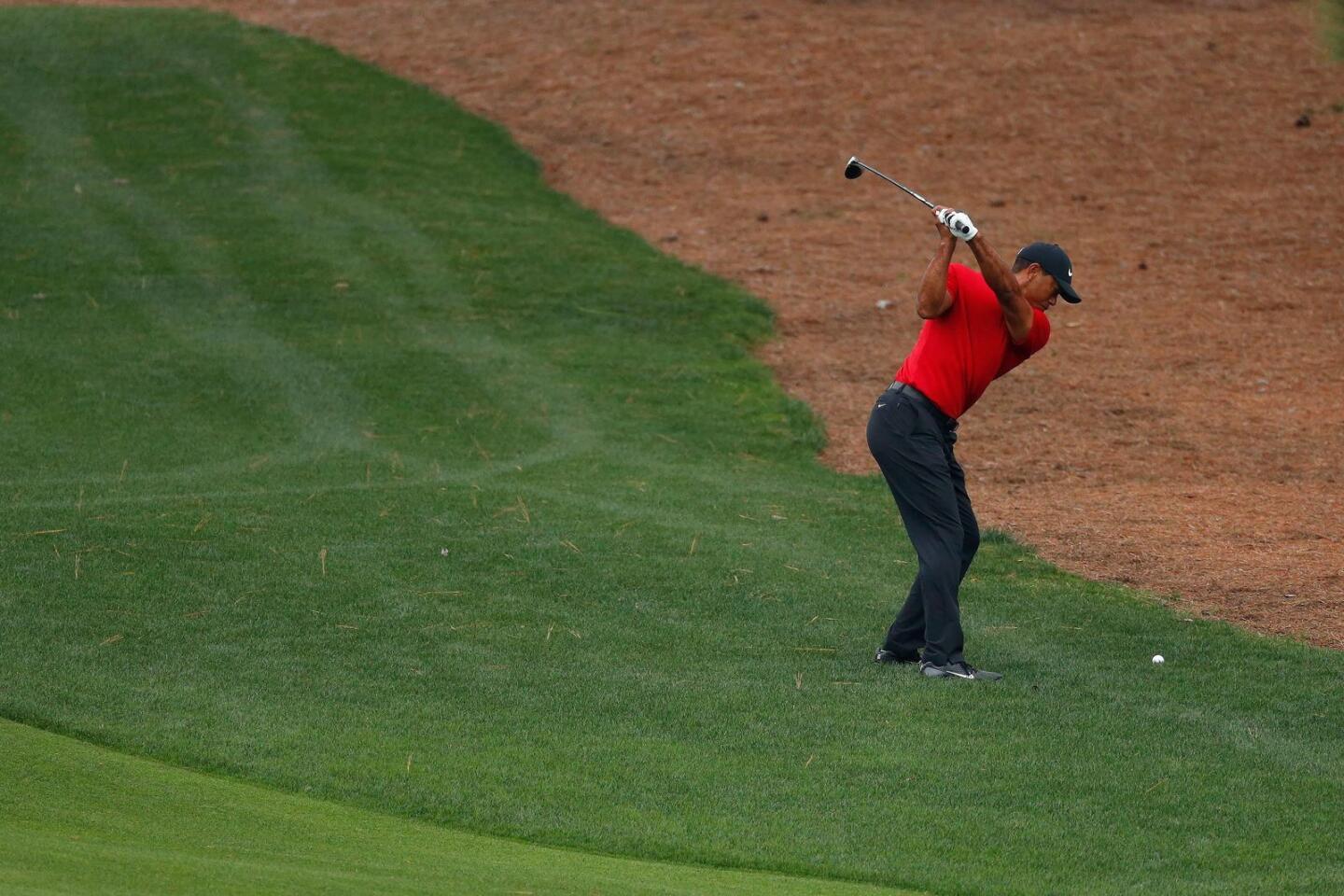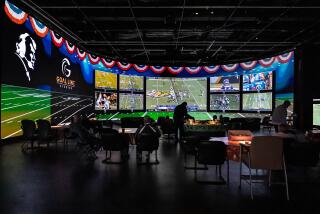Peyton Manning understands hardships Tiger Woods overcame in comeback
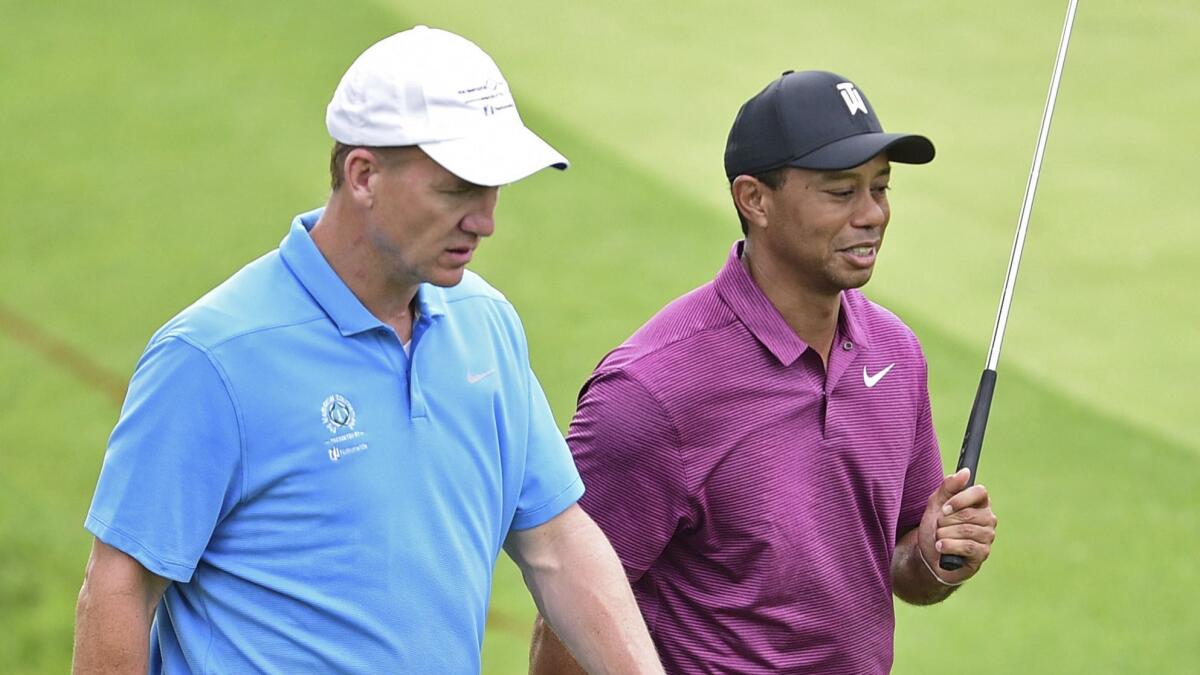
- Share via
As Tiger Woods pulled off his stirring victory at Augusta National last month, one of the greatest quarterbacks in NFL history watched from his couch in awe and appreciation.
Peyton Manning was at home in Denver, taking in the Masters moment that captivated the golf world. Woods is his friend and occasional playing partner, and Manning – who won a second Super Bowl ring after four neck surgeries nearly ended his career – has a special appreciation for the physical challenges the world’s most famous golfer had to overcome.
“I know from the injury standpoint how hard he worked, how determined he was, the adjustments he had to make,” Manning said in a phone interview. “I really think it’s just kind of the beginning. I don’t think that’s the last time he’s going to get crowned.”
Woods’ next chance for a major championship title comes this week in the PGA Championship at Bethpage Black, where he won the U.S. Open in 2002. Despite four back surgeries that two years ago left him unable to get out of bed, let alone play golf, Woods battled back to win his 15th major, three shy of tying Jack Nicklaus for the most ever.
Manning, who retired after his Denver Broncos won Super Bowl 50 three years ago, is reluctant to claim even a sliver of the spotlight that’s currently trained on Woods. But he agreed to speak to The Times for this story because there are undeniable parallels between the 43-year-old superstars. Both overcame long odds and debilitating injuries to claw their way back to the mountaintops of their respective sports, even after injuries that in most cases would be career-ending.
The two discussed that privately last year when they were pro-am partners at the Memorial Tournament, where they will be paired again next month.
“The one thing that really frustrated him was his limited practice repetitions,” Manning said. “He used to be a guy who was out there all day hitting balls. He used to try to get 1,000 contacts with the ball [in a practice session]. That could be putts, chips, whatever. He said, ‘Now, that’s out the window. I can only do so many, because if I do 1,000, I’m not going to be able to walk the next day.’
“I was the same way. I was a guy that could throw all day. I was a stay-up-til-2-in-the-morning guy to watch film. I was a guy that was going to sacrifice my pre-practice stretch in order to be talking to the coach about the game plan during my stretch. Or staying in the meeting until 12:50 for a 1 o’clock practice, working on a new red-zone play.
“But once I had my injury, that all changed. I said, ‘No, I’ve got to go through my full rehab and pre-practice routine of warming my body up, my arm up. I’m going to sacrifice my last-minute film because the physical has to take over.’ I think Tiger kind of has the same thing.”
So Manning could relate when, before the final round of the Masters, Woods said he was setting his alarm for 3:45 a.m. to get warmed up and ready for his 9:20 tee time, moved to the morning because of an approaching storm. Before Woods put head to pillow that night, his quarterback friend reached out to him.
“I sent him a text that Saturday night saying, ‘Hey, good luck tomorrow,’” Manning said. “And he wrote back, ‘Thanks. It’s going to be fun.’ That tells you how excited he is to be back in the arena.”
Then, unbeknownst to Manning, his 8-year-old daughter grabbed his phone and sent Woods a text of her own.
“She texted, ‘Tiger, it’s Mosley Manning. Just wanted to wish you luck tomorrow.’ He texted her back: ‘Thank you so much. I appreciate it.’ That kind of told me he’s pretty relaxed and ready to roll. And Sunday, he sure played that way. He looked calm and in control out there, like the old Tiger.”
After his win last month, Woods discussed the crippling back pain he endured in recent years – and his recovery from it.
“I could barely walk,” he said. “I couldn’t sit. Couldn’t lay down. I really couldn’t do much of anything. Luckily I had the procedure on my back, which gave me a chance at having a normal life. But then all of a sudden, I realized I could actually swing a golf club again. I felt if I could somehow piece this together that I still had the hands to do it. The body’s not the same as it was a long time ago, but I still have good hands.”
After his neck surgeries, Manning had to re-learn how to throw. He did that at Duke University in workouts cloaked in secrecy. He marvels at the way Woods had to deal with his body betraying him in public, enduring physical meltdowns in tournaments and missing shots that once were automatic.
“For him to see himself hitting shots that weren’t good, that can be a scarring thing to deal with,” Manning said. “For Tiger, before his injuries, I guarantee you that the ball always went where he wanted it to go. And he was probably shocked when it didn’t.
Sign up for our daily sports newsletter »
“Now, all of a sudden, he’s hitting shots that are off-line, not going anywhere, and chunking his chips. To see yourself doing that is like, oh my gosh, it can make you just not want to play anymore or never be able to overcome that.
“I was kind of the same way. I was always really surprised when the ball didn’t go where I wanted it to go. I was aiming for that inside number on a guy’s jersey, and I was going to get it there. When it didn’t go there, I was surprised.”
Because of nerve damage in the wake of his surgeries, Manning initially lost all feeling for where his right arm was relative to his body. He had to stop throwing. He would stand in front of a mirror and practice his throwing motion, just so he could control the motion of his arm.
“Tiger had to do the same thing,” he said. “He had to stop playing. Because you don’t want to do that for too long, throwing bad or hitting bad, because that kind of becomes your new norm. He deserves so much credit for being able to overcome the mental part of not hitting great shots, and hitting bad shots. The fact that he’s overcome that tells you even more, just how impressed people should be about how far he’s come.”
So what fuels a player who has already made more money than his family will ever need, has assembled a Hall of Fame career, and is facing an arduous uphill climb with a slim chance of success?
For Manning, who played a team sport, the people around him were huge motivators. He won a Super Bowl and cobbled together Canton-worthy credentials with the Indianapolis Colts, but, after Manning missed an entire season, that team was moving on to Andrew Luck. Manning’s next chapter was with the Broncos.
“The fact that I was going to a new team, and [linebacker] Von Miller’s going, ‘We just signed PFM – Peyton Freaking Manning,’ and Von has no idea about my injuries. So it’s like, you know what, I’m going to work as hard as I possibly can to be that player Von Miller thinks he’s getting as a teammate. I don’t want to let him down.
“Tiger is playing with these guys now that are looking up to him. I think that part kind of motivated him, like, ‘Hey, I want to be that guy that this guy is used to seeing. This guy says I was his favorite player growing up, and I want to be that player.’
“But I also think it’s kind of the challenge of, ‘Hey, can I overcome this?’ ”
Manning has known Woods for two decades. They were pro-am partners at Bay Hill in 2005. He has seen Woods at the height of his greatness.
“I played with him last year, and you saw some of those things coming back,” Manning said. “Maybe you saw some things that seemed a little more human, because he had set the bar so high.
“In the Tour Championship [which Woods won in 2018], you saw it. I think he knew this [return to prominence] was coming. You kind of take these baby steps, and you look for little things that just kind of tell you, hey, there’s some progress here. ‘I’m feeling better. I’m seeing things.’ You take these quiet little victories – a good shot or a good throw. Of course, winning the Tour Championship isn’t a quiet victory, it’s a big one.
“But I think he had all those things kind of build up last year. Hey, I’m just going to keep throwing completions, if you will, and finally the touchdowns and the birdies are going to come. Obviously for him, they came in a big way in the Masters.”
Manning said the rehabilitation experience, tough as it was, changed his perspective for the better. And he believes it’s the same for Woods.
“In a strange way – you hate to deal with it and go through these injuries – but the fact that you overcame it, you certainly learn some things,” Manning said. “It’s pretty gratifying knowing you can come through it. You’re almost glad you went through it.”
Twitter @LATimesfarmer
More to Read
Go beyond the scoreboard
Get the latest on L.A.'s teams in the daily Sports Report newsletter.
You may occasionally receive promotional content from the Los Angeles Times.

